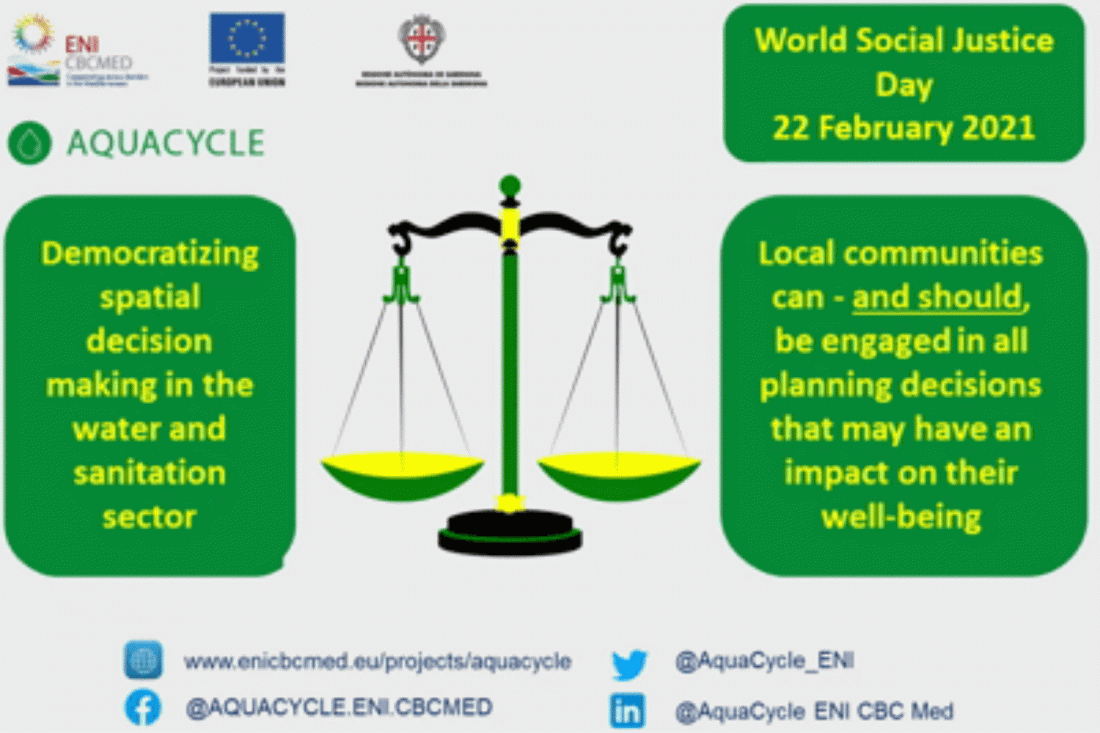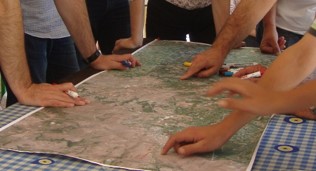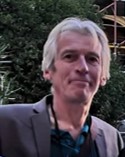AQUACYCLE vise la démocratisation de l'aménagement du territoire dans le secteur de l'eau et de l'assainissement

Ce contenu est disponible uniquement en anglais
In follow-up to the Opinion Article issued by the Lebanese University in October 2020, which dealt with the use of treated wastewater as a solution to address the impacts of climate change in Lebanon and MENA Region, the authors of this second Opinion Article in the AQUACYCLE Partnership wish to highlight the importance of democratizing spatial decision making in the water and sanitation sector.
“Our ultimate aim is to deliver on the key message that not only all water is precious too waste, but also that local communities can – and should – be engaged in all planning decisions that may have an impact on their well-being.”

Remote sensing expert, Anna Spiteri and hydrologist Dirk De Ketelaere, who run the environmental research company Integrated Resources Management (IRMCo) based in Malta, explain their reasoning why a much need paradigm shift in the reuse of treated effluent needs a holistic approach that integrates not only the economic and environmental aspects but also the well-being of society as a whole.

Our research over the past 25 years has increasingly convinced us that new technologies will only reach the market, and therefore result in the creation of new jobs, if their benefits are clearly demonstrated in a process of co-design and co-testing with all actors involved. In this context, we consider that gaining society’s interest - and eventually confidence - in a new technology can be equally, if not more important, as compared to even the smartest and properly executed technological push effort.
This is why, as a company involved in EU funded research projects for the past 25 years, we are using an ever-evolving portfolio of participatory approaches to ensure the active engagement of all relevant actors – and not least the representatives of civil society so that no stakeholder is excluded - in these projects throughout their duration. I can say that today, we have successfully adapted our scientific expertise in remote sensing and GIS to become advocates of the use of online Participatory GIS..

As elaborated in more detail in the Opinion Article, the authors are aiming to build on their successful achievements in the ENI CBC Med funded project Mare Nostrum, which dealt with coastal zone management, to once again collect bottom inputs through the direct involvement of local communities.
To this effect, in AQUACYCYLE, farmers, environmental NGOs and local community representatives around the foreseen pilot demonstration sites of the eco-innovative wastewater treatment technology in Lebanon, Spain and Tunisia, will be invited to come up with their own proposals for the reuse of treated wastewater.
In a subsequent step, these proposals will be screened in a systematic, yet fully transparent manner, to ensure social well-being, health and environmental safety aspects are duly taken into consideration, together with economic criteria to produce optimal reuse action plans.
Furthermore, the aspirations and testimonies of the participants will be documented in a Mediterranean Charter for the safe and sustainable use of treated wastewater. The Charter will then be presented for endorsement by national and regional entities in the water and sanitation sector.
Their Opinion Article can be downloaded here in English, French and Arabic.







